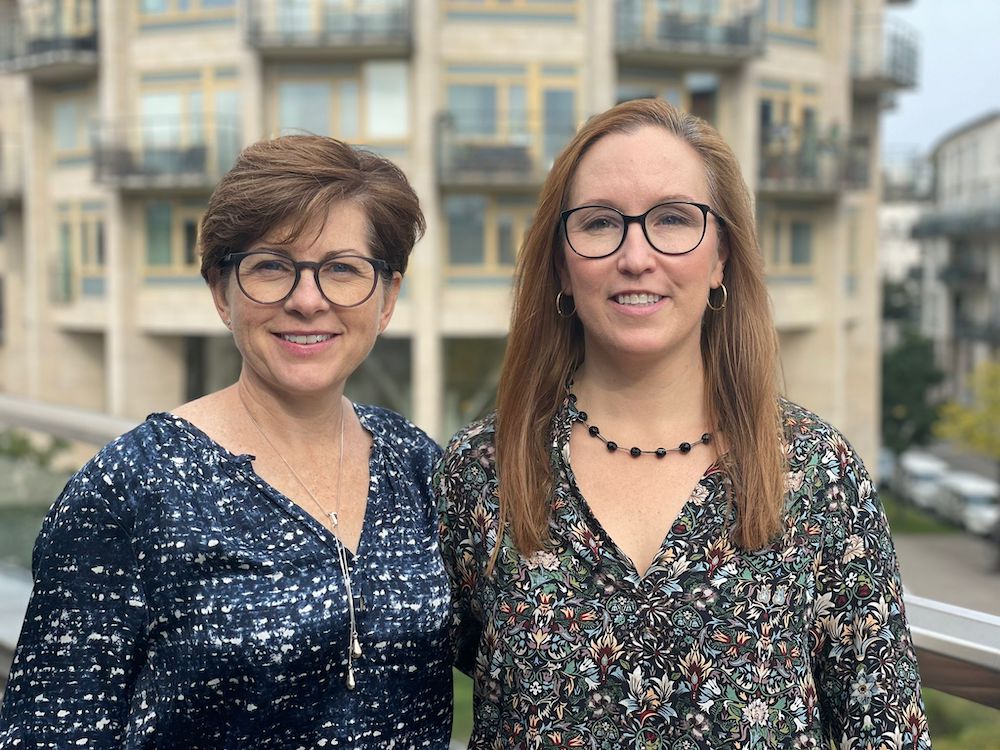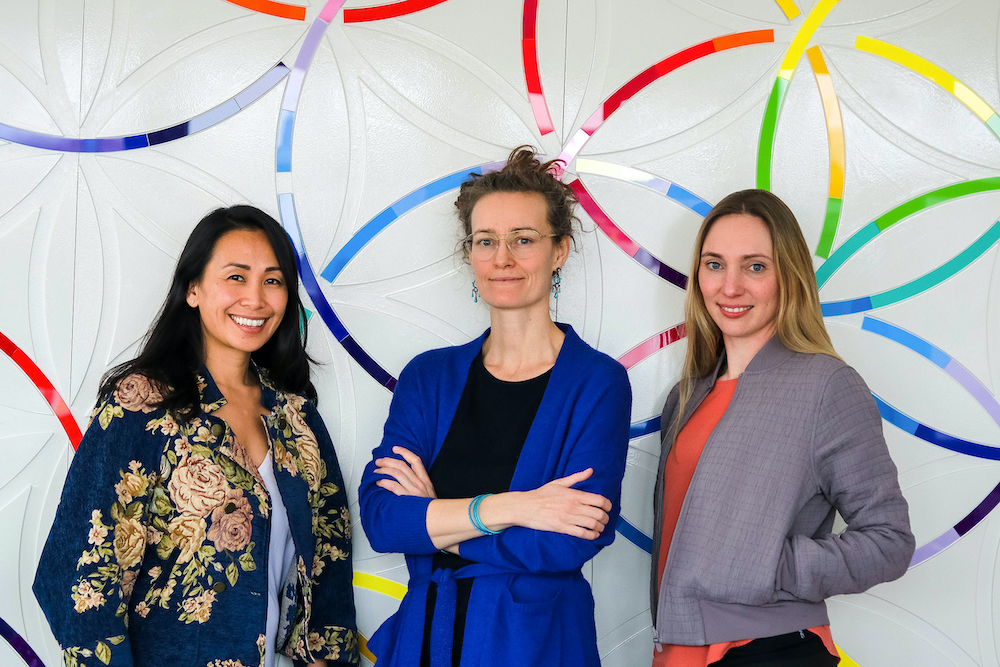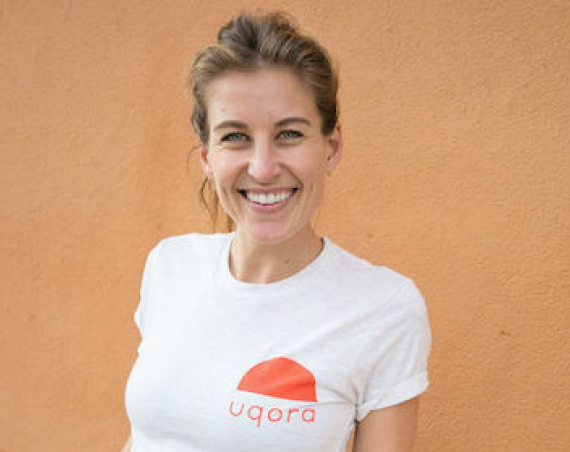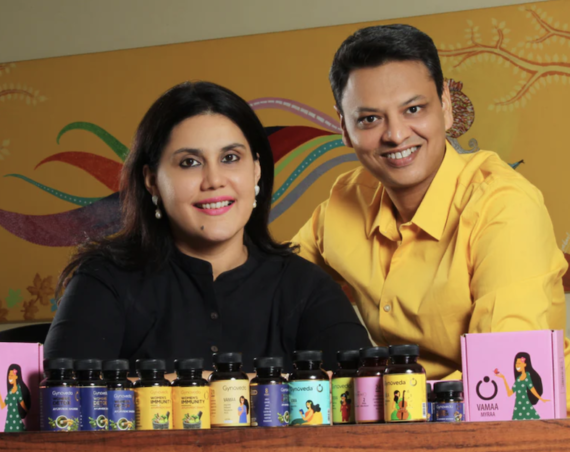It’s been a couple of exciting months at Clue. Co-founder and femtech pioneer Ida Tin stepped down as CEO, the company received FDA clearance for its digital contraceptive Clue Birth Control and last December a new €16M round of funding to take the new product to market in the U.S. was announced.
This post is about Clue, but also about the rise of femtech with all its opportunities and challenges over the past couple of years. Let me start by setting the scene. In my opinion Clue, the Berlin-based scale-up, is *the* “OG” femtech company and if it wasn’t for Clue Co-founder Ida Tin, I probably wouldn’t be here today writing this and this platform most certainly wouldn’t be called *Femtech* Insider, a term Tin coined back in 2016, when fundraising for Clue.

I think I remember when I first heard about Clue. One of my colleagues at the media startup I was working at in Vienna back then told me about “this new period tracking app someone in Berlin was building”. And to be honest: At the time I didn’t quite get it. I was so disconnected from my own body at the time (Thank you, undiagnosed PCOS!), that my period was not really more to me than something to “get over with”. Tampon in. Tampon out. Done. It took me many years to understand that educating myself about my body, paying attention and working with my cycle, instead of simply “dealing with it” actually was hugely beneficial to my own health, wellbeing and consequently happiness. Clearly I wasn’t an “early adopter” here, but I’m glad I eventually found my way.
Among those who understood the importance of menstrual health a lot earlier than I did are Cristina Ljungberg and Wendy Anderson, Co-founders of The Case for Her, a philanthropic investment firm that addresses key women’s health issues like menstruation and sexual health. They were early investors in Clue and have since continued to advance the conversation around menstrual health through investments and advocacy work. In a recent interview, Anderson shared: “We invested in Clue in 2016. From the beginning we were impressed with the team at Clue and the way they were addressing critical issues around data and privacy. Educating users on these topics and of course about their health takes time and resources, which Clue understood from the start.”

And the focus on user education has paid off. Since its founding in 2012, Clue has been able to establish itself as a trusted leader in the reproductive health space, as proven yet again by its recent expansion into tech-based contraception with Clue Birth Control, the company’s recently FDA cleared digital contraceptive.
This product expansion is noteworthy for two reasons:
First (and on a somewhat personal note): A digital contraceptive? How freakin’ cool is that?! I personally always get excited about innovation when it comes to non-hormonal birth control. And Clue’s tech-driven alternative is definitely one to watch alongside some other favorites like OCON’s hormone-free smart IUD or Contraline’s work on male contraception.
Secondly (and maybe even more importantly), this recent milestone also marks a point of evolution for Clue, as the company transitions “from ‘creating consumer tech’ to building a medical device”, as Clue Co-CEO Audrey Tsang put it in a recent interview. Tsang and Carrie Walter followed in Ida Tin’s footsteps as Clue’s new Co-CEOs after Tin decided to move on to a Chairwoman role last March. Both women had been with the company for years at the time of their appointments, Walter as General Counsel and Tsang as CPO. Today they are leading Clue through a time of evolution and growth as they take the new product, Clue Birth Control, to market in the U.S. and gear up for international expansion aka lots of regulatory work.

Co-CEO arrangements aren’t all that common. Unusual one might say. But as Clue Investor Bo Ilsoe, Partner at NGP Capital noted in a recent post: “Clue is an unusual company. From the outset, founders Ida Tin and Hans Raffauf instilled a very mission-driven culture and a more ‘intentional leadership’ style, something that is typically added later in a company’s life as growth necessitates.”
And speaking to the new Co-CEOs, this intentional way to lead is still felt today and yet again proven by the company’s conscious way to take the new product, Clue Birth Control, to market. Having received FDA clearance for use in the United States, Clue still opted for a limited launch at first in order to generate more learnings before fully releasing the new features. This approach is “part of the company’s commitment to put the community first, and involve them in the mission to empower women with the science, data and technology they need to make informed reproductive health choices throughout every life stage.”
And equipped with insights from this limited launch and the new funding, the company has big plans for 2022 and beyond. In a recent interview with Sifted about the oversubscribed €16M round Clue Co-CEO Carrie Walter shared: “I think it’s important to add that we haven’t had to go around with a begging bowl and could have raised more money if we wanted to. The amount we raised is what we think is the right amount to build things in a considerate and sustainable way. The world has picked up on the fact that this is a useful product and it’s on us to not try and make the biggest splash, but be as thoughtful as we can in the roll out.”
Clue’s approach: Slow and steady wins the race. And the company’s success seems to prove them right.

But is this intentional, thoughtful and maybe slower path to market “en vogue” in the (over?)hyped femtech market these days? Given the amount of “no-code” women’s health solutions that lack any kind of data protection we get pitched here at Femtech Insider, it certainly doesn’t seem that way. In my opinion this is of concern.
Hustle gets rewarded, and some VCs like to invest in those who move fast and “put something out there” no matter what. Speed over science seems to have become acceptable to some, fueled by the lack of available research on so many aspects of women’s health. And as someone who has spent many years building SaaS product and has probably read Eric Ries’ ‘The Lean Startup’ one too many times, I think I have an idea where this trend originated. Generalist investors, used to SaaS or consumer tech timelines and playbooks, are increasingly moving into the healthcare space (Which in itself is great! More funding ftw!) and are trying to pattern match (Which can be problematic…).

Healthtech isn’t productivity software. And in femtech we’re usually not building SaaS products to be used in the workplace but tools to help humans manage their health, so what we put out there starting with the MVP (aka Minimal Viable Product) really matters. The Head of Product at a B2B software company I used to work for once said: “Experiment. If you mess up, it’s ok. No one dies.” Strong words, but what he said was certainly true for the feature set I was working on at the time. In digital health, however, it’s an entirely different story. When we “move fast and break things” in healthcare we’re putting human health and lives at risk and that is simply never ok.
Companies like Clue role model that success doesn’t necessarily require “as big and fast as possible” or “first” and the recent raise represents a vote of trust in Clue’s way of building, growing and doing business. As early Clue investor The Case for Her’s Wendy Anderson puts it: “Getting FDA approval as a digital contraceptive underlines the understanding that period tracking apps are in fact medical devices and is yet another proof point for Clue’s leadership in the femtech space. And as the ecosystem grows and evolves we hope that others will take note and follow in their footsteps.”
The blueprint is there and Clue’s case should inspire and remind all of us that what we create matters. And while a lot has changed over the past 10 years since Clue first launched, the company is still leading the way.
There is in fact a right and a wrong way to build in healthcare and there are no shortcuts. For those who choose to do right by their users first and foremost, it can seem challenging and frustrating at times to follow the intentional, and maybe slower path that pioneers like Ida Tin have laid out and followed, especially when surrounded by all the noise in the midst of a “femtech hype”. Doing the right thing in a sometimes crazy venture-backed world takes vision, integrity and dedication to seeing things through. Ida Tin, I believe, had all of those when building and growing Clue over the past decade and my hope today is that many will follow her lead in the years to come.



